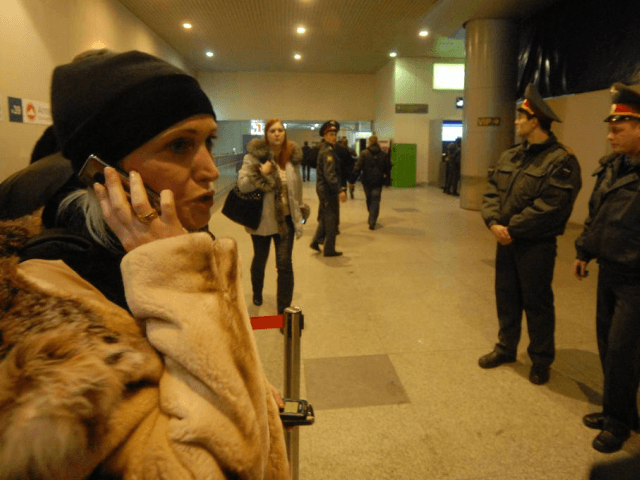The Russian Foreign Ministry released a statement on Thursday warning its citizens to be careful if they travel abroad because the United States is “hunting” for Russians to arrest.
The Foreign Ministry warned Russians of the “threat of being detained or arrested at the request of U.S. law enforcement and intelligence services in third countries.”
“Despite our calls to improve cooperation between the relevant U.S. and Russian authorities … U.S. special services have effectively continued ‘a hunt’ for Russians around the world,” the statement asserted. “Considering these circumstances, we strongly insist that Russian citizens carefully weigh up all the risks when planning trips abroad.”
In other words, the Foreign Ministry is telling Russian citizens they might be arrested by third countries and extradited to the United States.
The UK Independent notes that the great Russian hunt carried out by the predatory U.S. government consists of arresting seven Russians in 2017 instead of the normal average of two per year, and the Russian Foreign Ministry itself admits that most of them were accused cyber-criminals.
Moscow does not make much of a case that any of these people were arrested randomly or unjustly. For example, one of the Russians arrested early in 2017 was Stanislav Lisov, who is charged with creating a trojan-horse virus that inflicted an estimated $5 million in damage on financial institutions across the world. Lisov was under investigation for the better part of three years before he was arrested by Spain and held for eleven months before his extradition to the U.S. was finally approved. That is difficult to square with the Russian Foreign Ministry’s alarmist portrait of American agents randomly scooping up innocent Russian travelers and hauling them back to Washington for show trials.
Moscow also complained about what it portrayed as the American kidnapping of Roman Seleznev from the Maldives in 2014. Under investigation since 2011 for his activities as a hacker-for-hire, Seleznev was frolicking in the Maldives precisely because the Russian cybercrime underground was convinced Western law enforcement could not touch them there.
The Maldives made a deal with the U.S. to arrest and extradite Seleznev, by all accounts moving swiftly but not extra-legally, and he came bundled with a laptop containing 1.7 million stolen credit card numbers. He was convicted on over 30 counts by a Seattle court in 2016 and sentenced to 27 years in federal prison, with a few more state cases against him pending. Again, this was not a random kidnapping hastily arranged because irritable American officials were eager to throw a few Russian tourists in jail.
The Foreign Ministry sneered that “Russian citizens face a prejudiced attitude on the part of American ‘justice,’” but the example they chose was Viktor Bout, the nefarious arms dealer who was the inspiration for the Nicolas Cage film Lord of War.
Bout was at one point the second most-wanted man in the world for U.S. intelligence services, the first being Osama bin Laden. He was busted in Thailand in a sting operation where he thought he was selling millions of dollars in weapons, including surface-to-air missiles, to the FARC terrorists of South America. He was arrested in 2008 and given a mandatory minimum 25-year sentence by a U.S. court in 2012. There isn’t much doubt that he ran a huge volume of guns to terrorists and criminal organizations, especially since the cocky smuggling kingpin had a penchant for making home movies of himself doing it.
Russia has been grumbling that the sentence was excessive ever since it was handed down, but Bout is an odd choice for an argument that American justice moves too swiftly and is irrationally biased against Russians.
The Russian Foreign Ministry’s statement is a political tantrum, and it’s not hard to see why. The statement warns that Russians in U.S. custody are “pressured to admit their guilt, despite the fictitiousness of the charges, and when they refuse they are given huge prison sentences.”
In addition to warning Russian travelers that Uncle Sam is waiting to pounce on them when they travel to foreign countries, the Foreign Ministry complained on Friday about U.S. accusations that Russia has been interfering in foreign elections, most recently Mexico’s 2018 presidential race. Moscow seems interested in laying the groundwork to deny what it fears Russians in U.S. custody might say about certain matters of international interest.

COMMENTS
Please let us know if you're having issues with commenting.